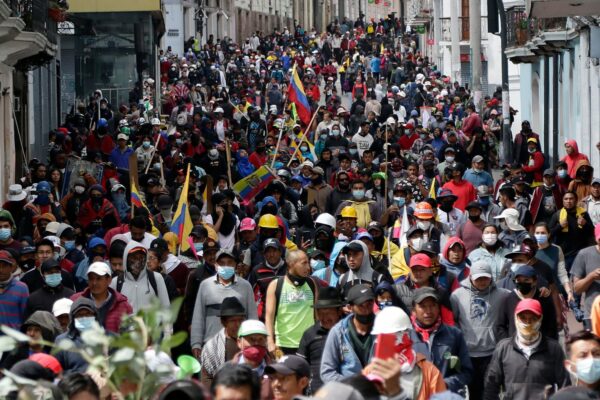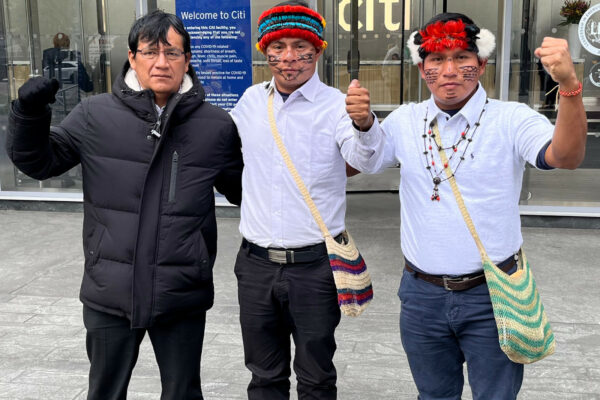For the past five years, Colombia’s abysmal labor rights record has led congressional Democrats to freeze the proposed U.S.-Colombia Trade Promotion Agreement (TPA). And for good reason: The agreement would, in part, benefit large-scale monocropping plantations and other economic projects – many of whose owners utilize the “security” services of paramilitary groups to intimidate, assassinate, and displace not only trade unionists, but also Afro-Colombian and indigenous leaders and families viewed as getting in the way of economic operations’ owners.
In April, President Obama and Colombian President Juan Manuel Santos defrosted the trade agreement, announcing a “Labor Action Plan” that details steps Colombia has committed to take in the coming months. Based on these promises, the TPA is likely to come up for a vote in the U.S. Congress before the end of 2011.
But the plan – according to U.S. and Colombian trade unions, human rights groups, Afro-Colombians, indigenous Colombians, and rural farmer associations – falls short. Far from guaranteeing fair and safe conditions for Colombian workers, the plan limits their ability to exercise their rights and ignores serious concerns about security, human rights, and Afro-Colombian and indigenous land rights.
In Colombia, being a trade unionist can be a death sentence. Colombia has the highest number of unionists killed in the world – more than 1,000 during the last 10 years. Most workers are not unionized. A large number of workers are forced into “associative cooperatives” that then contract with employers; these not only impede unionization, but they also result in workers not having the labor protections that are afforded to direct employees. In the sugarcane industry in Valle del Cauca, where this model operates, Afro-Colombians work in slavery-like conditions.
Beyond labor rights, the announced plan also ignores the fact that, in Colombia, many large-scale “development” projects, including plantations of monoculture crops such as oil palm trees, have been illegally and violently imposed onto land belonging to Afro-Colombians and indigenous communities.
With 5.2 million internally displaced persons, Colombia competes with Sudan for the slot of largest internally displaced population in the world. In multiple rulings, Colombia’s own Constitutional Court has highlighted the connection between large-scale monoculture agriculture, paramilitary violence, and displacement of Afro-Colombians and indigenous Colombians from their homes.
The underlying conditions that cause much of the violence – the internal armed conflict and paramilitaries that operate with impunity – are not addressed in the labor action plan agreed to in April. In that plan, Colombia commits to long-overdue steps, such as expanding protection programs for trade unionists and hiring 100 labor inspectors this year to address abuses in sugar, oil palms, ports, and mining cooperatives. But these steps do not go far enough. The plan does not require any decrease in violence against trade union members, or any progress toward justice for those already hurt or killed; it also does not deal with other important labor issues, such as allowing for industry-wide unions.
For five years, U.S. and Colombia labor movements and human rights organizations, as well as U.S. Democrats, have pressured Colombia to make these changes, yet little has been done. Given Colombia’s poor track record on other human rights issues, it is unlikely it will fundamentally change its current dismal labor environment by the end of the year.
Colombia has a long history of undelivered promises with regard to labor and human rights. Its Constitutional Court has issued orders urging Colombia to take action to protect ethnic minorities from further harm, but the country has not done so. If Colombia ignores directives from its own judicial system to protect the rights of those who would be impacted by the TPA, what reason is there to believe it will guarantee the rights of its own workers with the Labor Action Plan?













